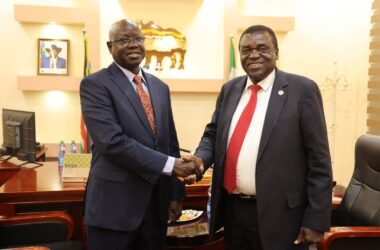By Bosco Bush
Amidst an ailing economy, the International Monetary Fund (IMF) has pledged support to South Sudan in the areas of economic management, technical systems, and policy advice.
South Sudan’s economy is plunging as families grapple with high cost of living caused by hyperinflation and extreme currency depreciation.
The country heavily depends on oil export revenue as well as imports of basic commodities.
However, oil flow has been disrupted by the Sudan conflict and a rupture in the country’s main oil export pipeline that runs through Sudan in March.
As of yesterday, the local currency is trading between 4,000 – 4,300 SSP per 1 US Dollar in the parallel market surpassing last year’s rate by far as of the time.
Attempts by the government to curb the economic recession are reasonably futile.
President Salva Kiir and other senior government officials from the country’s monetary institutions on Tuesday, met with IMF’s visiting team led by Niko Hobdari and discussed ways to usher economic recovery.
According to a statement obtained, Niko said, the IMF team has been in the country to interact with officials from the Ministry of Finance and the Bank of South Sudan on economic matters.
Meanwhile, Minister of Finance and Planning Dr. Marial Dongrin Ater lauded IMF for their support in the area of economic management, saying Juba looks forwards to continue engagement with IMF on mechanisms, aimed at addressing the current economic situation and to attain a sustainable recovery.
The IMF is a global organization that works to achieve sustainable growth and prosperity for all of its 190 member countries.
It does so by supporting economic policies that promote financial stability and monetary cooperation, which are essential to increase productivity, job creation, and economic well-being. The IMF is governed by and accountable to its member countries.
South Sudan joined the Fund on April 18, 2024




